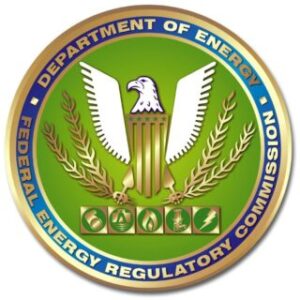
While INGAA recognizes that the Commission has made efforts to meet certain of the objections raised by the industry in comments on the Commission’s Notice of Proposed Rulemaking (“NOPR”) in this matter, the Final Rule adopted by the Commission is too broad, and the new requirements are unnecessary to meet the Commission’s objectives.
The Commission’s Final Rule defines “Energy Affiliates” as not only affiliates engaged in transmission transactions on affiliated pipelines, but also affiliates “involved” in transmission, including ones that manage or control transmission capacity, that buy, sell, trade, or administer natural gas, and affiliates that engage in financial transactions “relating” to the sale or transmission of such energy. As such, the Commission has erred by defining “Energy Affiliate” more broadly than is necessary. Further, by using terms like “involved in” or “relating to” transmission transactions, the definition of “Energy Affiliate” used in the Final Rule is impermissibly ambiguous.
INGAA also submits that the Final Rule is not supported by record evidence. Accordingly, the rule does not meet the reasoned decision-making and substantial evidence requirement for Commission rulemaking. The Commission is imposing broadreaching and onerous obligations on interstate gas pipelines and their energy affiliates – which will have adverse financial and market efficiency impacts – supported only by suppositions regarding the impact of industry changes on the potential behavior of regulated pipelines. Industry changes cited by the Commission are neither new nor changes that support the Final Rule. Rather, the Commission has in numerous prior orders identified such industry changes as pro-competitive. Moreover, the scant anecdotal evidence of industry incentives and abuses does not support the changes promulgated in the Final Rule. The only factual basis relied upon by the Commission for
extending the rule to “Energy Affiliates,” broadly defined, is contained in footnotes 14 and 15 of the Final Rule. As shown below in Part I.A.3. and in Exhibit 1, the data relied upon by the Commission does not support the conclusions reached by the Commission. Further, the Commission correctly decided to exempt LDCs from the Final Rule but erred in not also exempting affiliated producers, gatherers, processors, Intrastate and Hinshaw pipelines. Finally, the Commission’s order is not supportable because it represents a change in the Commission’s existing regulatory requirements without an explanation as to why those regulations are no longer sufficient to prevent undue discrimination. To the contrary, the cases relied upon by the Commission in the Final Rule demonstrate the effectiveness of the Commission’s existing marketing affiliate and anti-discrimination regulations.
Importantly, the Commission has failed to properly consider the operational impacts of this expansion, the costs associated with the new rule, and the negative competitive effects. It is important that pipelines and affiliated facility operators be able to communicate and interact with one another in an unencumbered manner in order to ensure a seamless delivery of gas. It is also critical during a time when the Commission itself has recognized the need for infrastructure development both offshore and onshore, that the Commission not impose requirements, such as those found in the instant rule, which will discourage such development. The Commission should also consider carefully new requirements which will advantage one segment of the industry to the competitive disadvantage of another segment. And finally, the Commission has not analyzed the costs that the industry will incur to comply with the new requirements and has not weighed those costs as against purported benefits to the consumer who will assume those costs.
INGAA also asks for clarification or, in the alternative, rehearing of numerous parts of the regulations, as discussed in Part III. below. Included among these clarifications is a request that the Commission revise or, in the alternative, clarify that the definition of energy affiliate is intended to exempt a holding, parent or service company that does not directly participate in energy or natural gas commodity markets or in transmission transactions in U.S. energy markets. INGAA is concerned that the existing terms of the Final Rule “engage in” and “involved in” are not sufficiently specific regarding the activities that would bring a parent, holding or service company back within the definition of energy affiliate. The Commission should also clarify the rule with respect to a parent or holding company that includes a utility as an operating division.
INGAA supports the Commission’s decision to continue to permit the sharing of non-Transmission Function employees, including officers and directors, support staff, and field employees, and to apply the no conduit rule to these shared employees. However, INGAA asks the Commission to clarify several aspects of the rule including the sharing
of service company employees, the treatment of risk management employees, and the sharing of support and field and maintenance employees, as discussed in Part III. below. To illustrate, the Commission should clarify that the communication of crucial operating information will not violate the functional separation requirement in section 358.4. INGAA additionally asks the Commission to clarify the “specific transaction exception” to include facility interconnect requests and discussions about planning new infrastructure. The Commission should also revise the regulations to clarify that transmission providers are not prohibited from communicating transmission and customer information to employees that may be shared under section 358.4.






